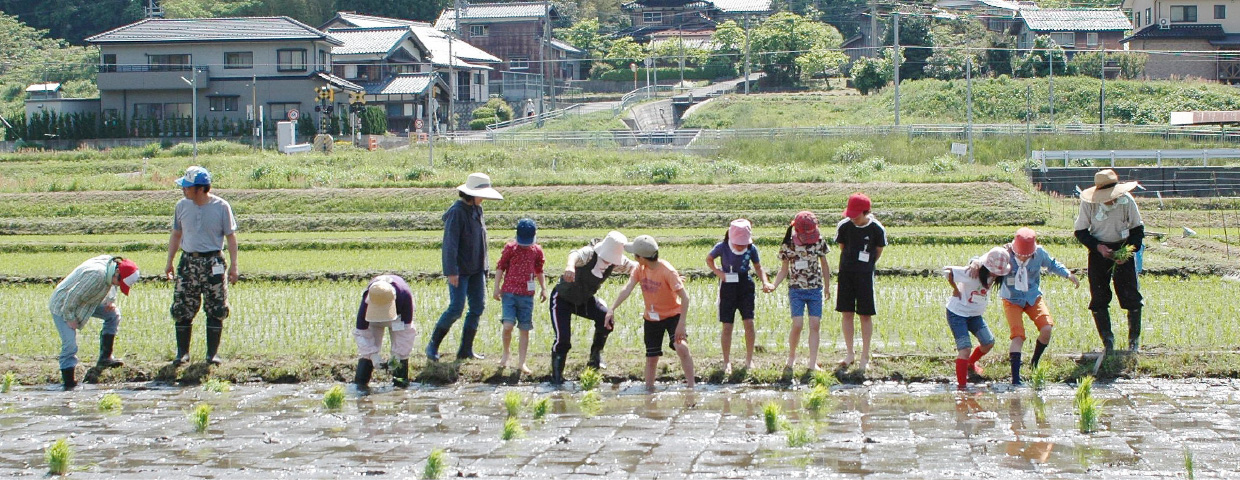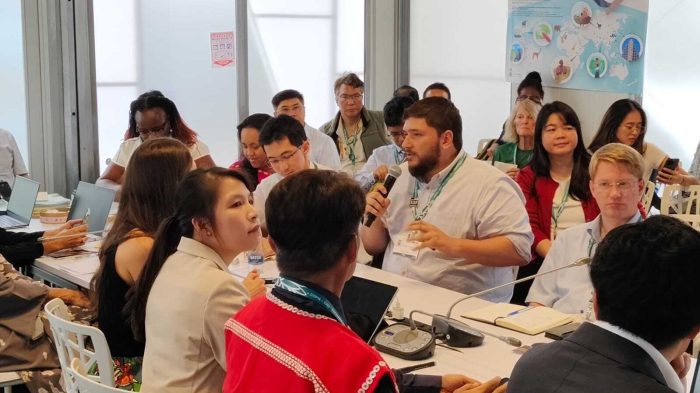NEWS

Local Initiatives Toward Achieving Global Biodiversity Goals
2024.11.13

On 31 October 2024, the IPSI Secretariat and UNU-IAS co-organized a side event of the 2024 UN Biodiversity Conference (CBD COP16) in Cali, Colombia, highlighting the activities of the International Partnership for the Satoyama Initiative (IPSI), a global effort to realize societies in harmony with nature through the revitalization and sustainable management of socio-ecological production landscapes and seascapes (SEPLS).
Opening the session, Tsunao Watanabe (Director, UNU-IAS Operating Unit Ishikawa/Kanazawa (OUIK); Director, IPSI Secretariat) noted that IPSI has amassed over 300 case studies illustrating how local action contributes to the implementation of the Kunming-Montreal Global Biodiversity Framework (GBF).
Maiko Nishi (Research Fellow, UNU-IAS) introduced key IPSI resources developed by UNU-IAS, which hosts the IPSI Secretariat. These tools and mechanisms support and promote the work of IPSI members, and include the Satoyama Initiative Thematic Review (SITR), which compiles SEPLS case studies, and Indicators of Resilience in SEPLS, which helps communities assess and strengthen their socio-ecological resilience. Koji Miwa (Policy Researcher, Biodiversity and Forest Area, Institute for Global Environmental Strategies (IGES)) highlighted the Satoyama Development Mechanism (SDM), a funding programme for projects that enhance biodiversity, community resilience, and ecosystem services within SEPLS.
Highlighting local initiatives for sustainable landscape management, Chih-You Ken (Chair of the Board, Miaoli County Saisiyat Indigenous Peoples Forestry and Worker Limited Liability Cooperative; Saisiyat Elder) discussed a collaborative project by the Forestry Conservation Agency and the Saisiyat Tribe. Through co-managing forests and developing a green forest industry, the project improved the tribe’s livelihoods and the ecosystem, contributing to the restoration of endangered plants of cultural significance. Andrés Quintero Angel (CEO, Corporación Ambiental y Forestal del Pacífico (CORFOPAL)) presented a project that was selected to receive SDM funding in 2025 to support local communities in the sustainable production of coffee.
A panel discussion explored ways to strengthen multi-stakeholder collaboration. Speakers, including representatives from youth groups, Indigenous Peoples and national governments, emphasized a whole-of-society approach and the importance of empowering communities to lead conservation and sustainable livelihood initiatives. Christian Schwarzer (Co-founder, Global Youth Biodiversity Network) stressed the value of engaging all societal sectors in efforts toward a harmonious relationship with nature. Abigail Kitma (Program Staff, Climate and Biodiversity Program, Tebtebba) shared experiences from the Philippines’ Indigenous Peoples’ National Biodiversity Strategy. Hideki Kawai (Deputy Director of Biodiversity Strategy Office, Nature Conservation Bureau, Ministry of the Environment, Japan) praised the session for bringing diverse perspectives together.
Presentations
- The Satoyama Initiative and Peer Learning on Landscape Approaches by Maiko Nishi, Research Fellow, IPSI Secretariat/UNU-IAS
- Satoyama Development Mechanism (SDM): Supporting On-the-ground Initiatives by Koji Miwa
- It Takes a Landscape Approach to Live in Harmony with Nature: Collaborative lessons learned from the Saisiyat journey of Indigenous stewardship and co-management partnerships by Society for Wildlife and Nature (SWAN)
- Integrating Sustainable Production and Biodiversity Conservation for Societies in Harmony with Nature in Colombia by Andres Quintero Angel, CEO, CORFOPAL


